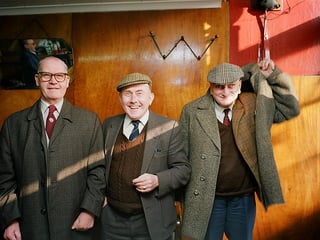Derelict factories, a threatened community and the arrival of a mega-mall - how photographer captured the moment Sheffield changed forever
and live on Freeview channel 276
The steel industry had collapsed into severe decline, manufacturing sites had closed and - in a bid to revive the economy by regenerating vast swathes of empty land - Meadowhall shopping centre was gradually taking shape.
"I suppose at the time there was a degree of limbo," says John, whose evocative pictures have been reprinted in a box set of books called Sheffield In Transition 1988-89.
Advertisement
Hide AdAdvertisement
Hide Ad"Lots of places were standing empty and heavy industry, in a Thatcher-esque environment, was pretty much on its knees."
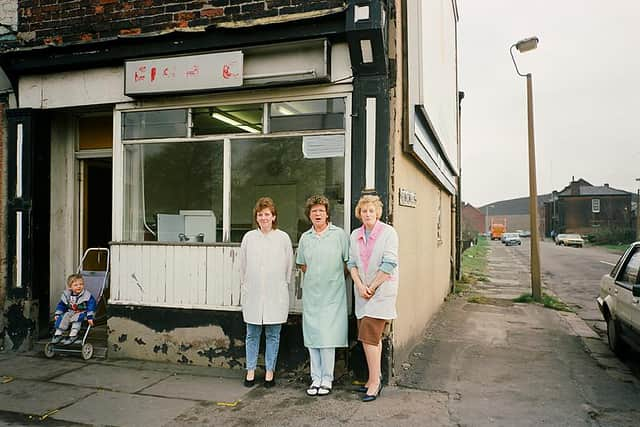

John wandered with his camera around derelict sites and desolate streets in the ravaged Lower Don Valley, documenting a unique time in the city's history. But he went further, too, by striking up a rapport with people living around Attercliffe and persuading them to appear in his pictures - such as a steelworker who found himself in the unsettling position of helping to demolish his old factory, members of a job creation scheme collecting rubbish from the land earmarked for Sheffield Arena, and the owners of small businesses who faced an uncertain future.
"I'd done projects on the Manchester Ship Canal, so I was very interested in the idea of tradition and community and how these things were gradually being swiped away to be replaced by whatever came next," says John, who was born in Bolton in Greater Manchester.
"In Sheffield I was drawn to places like Attercliffe and the Don Valley - most of the buildings I photographed had compulsory purchase orders on them at the time. I was catching them before they disappeared. I was photographing Meadowhall while they were putting the dome on it, they had a helicopter dropping it into place. It's totally emblematic of that move away from heavy industry to a more service-based economy. The irony, of course, is that it was all being done with steel."
Advertisement
Hide AdAdvertisement
Hide AdThe Untitled Gallery specialised in photography and is now the Site Gallery, which has a broader remit than its predecessor. John was one of several photographers tasked by the venue with making a visual record of the upheavals of the 1980s - an exhibition, The Sheffield Project: Photographs of a Changing City, was planned to start in May at Weston Park Museum.
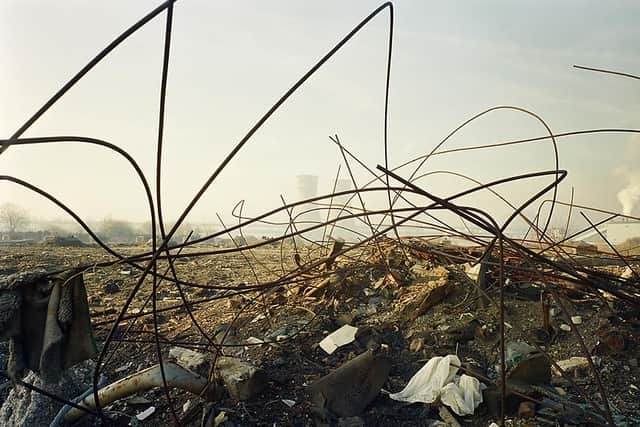

"I'd wander round the Don Valley or one of the old factory units that were standing empty and being vandalised - I'd photograph what caught my eye and then in a more rigorous way I'd photograph the shops and stores along Attercliffe," says John. "I'd work my way along the road, go in and explain what I was doing and asked if they'd mind if I took some photographs."
One of the most arresting photos is an image of a young man - sporting garish teal-coloured socks - performing a kung fu kick while his sunglasses-wearing friend reclines on the bonnet of a small hatchback car as if it were a Ferrari.
"He's on Attercliffe Road," says John. "I photographed all sorts - television repair shops, cafés, Asian markets... it felt like this big melting pot of a community that was on the verge of disappearing."
Capturing these scenes took time and effort.


Advertisement
Hide AdAdvertisement
Hide Ad"I'd be there for the best part of a day and quite often go back to show people what I'd done. I was quite happy to discuss the work with them. One guy didn't want me to use pictures of his shop, for various reasons. That's fine, people have the right to say no."
The title of the box set - 'In Transition' - has a personal resonance for John too.
"Halfway through the project I stopped working in black and white," he says. "It was the first colour photographs I'd ever taken, and I haven't taken a black and white photo for 30-odd years now. It completely changed my sense of what I was doing in Sheffield. Instead of making it look slightly nostalgic, it brought it up to date and said 'this is now'."
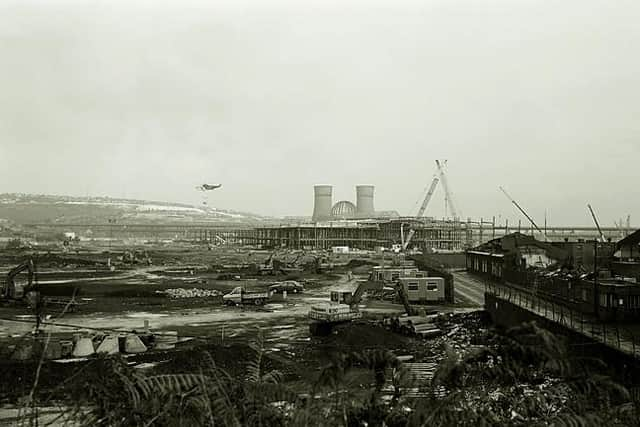

Previously he had been resistant to the idea of switching from monochrome.
Advertisement
Hide AdAdvertisement
Hide Ad"My heroes were all working in black and white, people like Robert Frank - it was just natural for me. There was a famous phrase that said 'Colour reveals but black and white describes', which I would throw around with great abandon at the time but now don't believe in at all. I think colour gives an immediacy to the work in some ways."
Everything was shot on film, but today John is content with ‘a little digital camera’. "If I could shoot on film I would but it's just too expensive."
After his work in Sheffield was finished, John moved to Cumbria where he still lives today and teaches as a professor of photography. His new home was close to Sellafield and he developed a fascination with nuclear power.
"I went round the world photographing Hiroshima, Nagasaki, Three Mile Island and Chernobyl - I was one of the first photographers to work in there. People have a misconception that these nuclear sites all look like the beginning of Godzilla or something. Chernobyl is hugely overgrown, nature is reclaiming the place."
Advertisement
Hide AdAdvertisement
Hide AdJohn was given a badge by the authorities that measured the amount of radiation he had been exposed to. "It's a bit like the canaries down the mine," he jokes. "But if you've been exposed, you've been exposed."
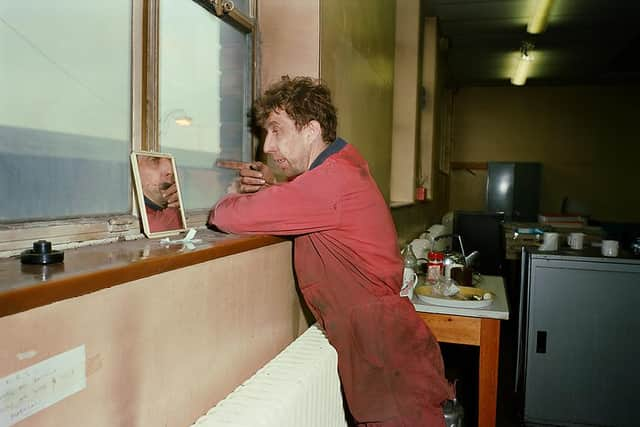

He returned to Sheffield for the first time since the late 1980s last year and found the city's transformation 'quite astounding'.
"I walked up from the railway station and didn't have a clue where anything was. The streets had all changed, the station looked all new, rundown buildings had been replaced with hotels and nice pubs… nothing was familiar.”
Sheffield In Transition 1988-89 is published by Café Royal Books as a box set of five volumes, priced £45. Visit https://www.caferoyalbooks.com/shop/john-darwell-sheffield-in-transition-198889 for details.
